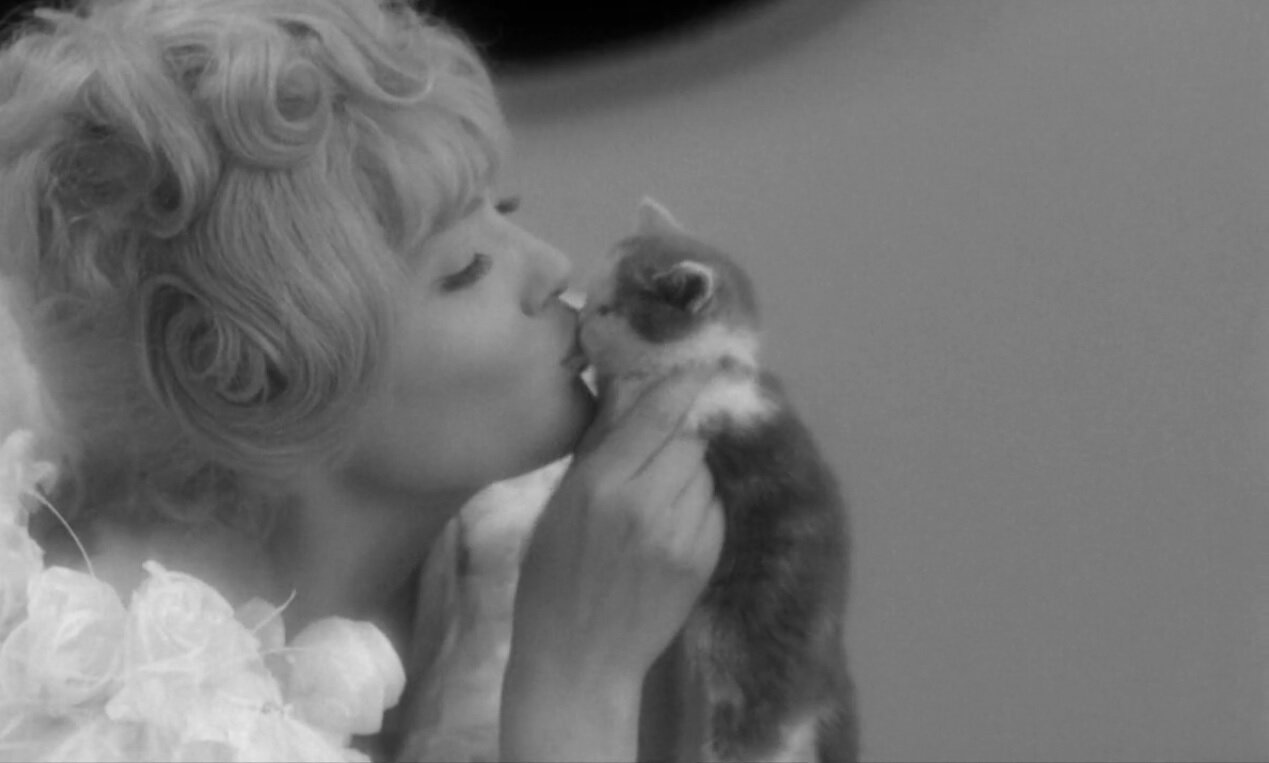Screenshot
By Andrea Thompson
It’s strange to imagine a world unfamiliar with Agnès Varda, but it was still in the process of getting to know her when she made the 1962 masterpiece “Cléo from 5 to 7.” It was only her second feature, and it took a subject other films would stretch across days, weeks, months, or more, and compressed it into real time.
Over the course of a mere 90 minutes, a young, beautiful, vain singer named Cléo (Corinne Marchand) is not just awaiting the results of a biopsy that will inform her whether she has cancer, she comes to terms with her own mortality. It would feel like paranoia or the hypochondria everyone assumes it is if the film didn’t heavily imply that Cléo not only has cancer, but that she will eventually die from it.
Thank goodness for Varda, because a lesser filmmaker, even a female one, would merely be punishing Cléo for her flaws. But Varda knows there’s more to it than merely portraying Cléo’s self-absorption and humbling her accordingly. As one of a very few female filmmakers during the male-dominated French New Wave, her signature touch, full of compassion, realism, and symbolism doesn’t just burst from the screen, it seems to swirl around us, gently sweeping all into her vision.
Yes, Cléo is focused on her appearance and her beauty, and she is well aware that it is her source of her power. It’s no accident that mirrors are a heavy presence in this film, appearing twice in the first ten minutes alone. But the kind of power Cléo possesses flows from others. It is the outside world who bestows Cléo with power, attention, and her career, and Varda’s camera, rather than lingering on Cléo and her, ahem, assets as she walks down the street, pulls back as both men and women stare and lavish her with attention.
But not comfort. Every friend Cléo interacts with fails to give her the emotional support she needs, and almost all of them, from friends, confidantes, and colleagues, refuse to take her illness, or even her, seriously. It’s an old, practically classic revelation for women who supposedly enjoy all manner of power and privilege: the discovery of just how fragile their position really is. One of the first, and only, clearly spoken revelations Cléo has about halfway into the film is when she says, “Everyone spoils me. No one loves me.” It’s also when she strips herself of her wig, dons a black dress, and leaves her luxurious apartment to wander alone in search of consolation.
It proves to be an evasive thing. This poor woman must grapple with death all day, from shattered mirrors which she interprets as bad omens to various films and even taxi drivers casually referencing the ultimate end. Even the tarot reader at the beginning, the only portion of the film in color, sets the tone, casually predicting nearly every event to come, and privately stating that she believes Cléo is doomed.
Varda refuses to give a final verdict, but just as another great film concluded “the problems of three little people don't amount to a hill of beans in this crazy world,” Cléo’s comfort arises from being able to see beyond herself. Or perhaps she just finally meets the right person-a young, talkative soldier named Antoine (Antoine Bourseiller). Unlike the other people Cléo encounters, who are still fully immersed in life, Antoine also has to grapple with the possibility of impending death as a soldier who will soon return to the battlefield of the Algerian War.
It is then when Cléo is finally able to lose her fear of her own possible end, and finally be at peace with herself in the Paris of the 60s Varda fully embraces in all its splendor. In this beautiful, fully alive world, perhaps Varda just found it unthinkable for despair or even death itself to emerge as the dominant force.


